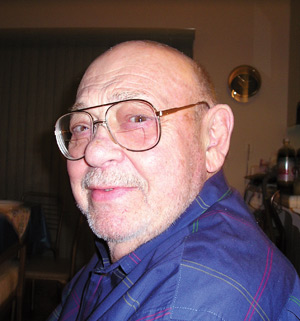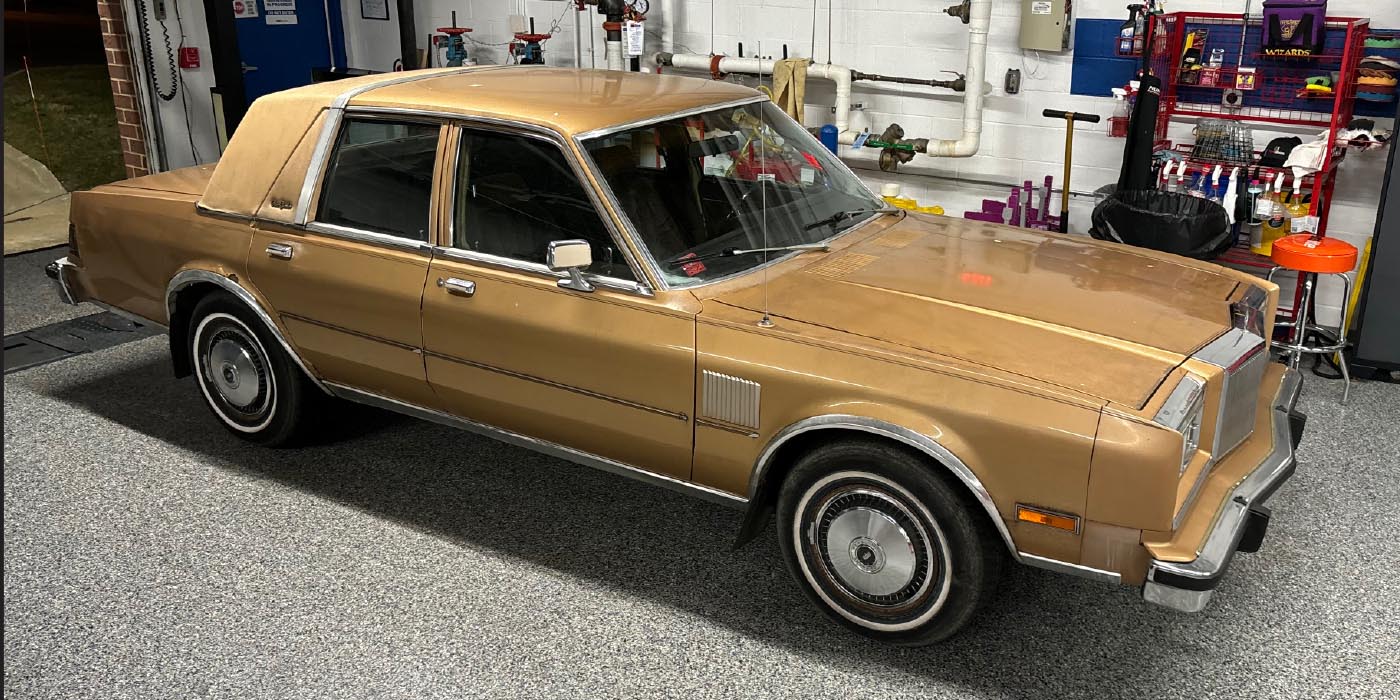I just returned home from the Mobile Air Conditioning Society Worldwide 2009 Annual Convention & Trade Show. As always, it was everything an association trade show and convention should be, and more. But, frankly, I expected nothing less because I’ve been to their events before and believe MACS is one of the best-run associations in our industry.
Now, you might be wondering what someone who is not in the business of recovering or recycling refrigerant might be doing at such a meeting, and that would be a fair question. Realistically, however, there are lots of reasons — everything from the quality of the education and training offered during the meeting, to vendor representation on the trade show floor. These and lots of other reasons, coupled with the quality of shop owners attending, makes it a very special place to just “hang out” with some of this industry’s finest. But, I wasn’t there for any of those reasons.

I was there to present what I felt are the “Keys to Survival in the Automotive Service Aftermarket” at an awards luncheon one afternoon and to participate in a panel discussion at breakfast the following morning.
In and of itself that may not sound odd or even remotely strange to you. But, it certainly was to me because when the invitation came almost nine months earlier, no one had any idea the keyword “survival” would be quite so relevant. No one knew then that nationwide so many shop owners would actually find themselves struggling to find those keys.
Perhaps, that’s why I found myself working so hard to find the right approach to what has now become a critical cause for concern for so many of us; the right words to help navigate some very tricky and dangerous waters.
I was stuck; paralyzed, in fact. Trying to figure out what, if anything, of value I could possibly add to the current discussions that have now become almost inescapable. It’s not as if there is a shortage of experts or a scarcity of opinions out there. You can’t read the paper, listen to the radio or watch television without someone telling you what to do in order to get through what has now become known as “the Great Recession.” But, how often does any of this translate well for you and for me?
I was sitting at the counter long after we were supposed to be closed one night, six or eight weeks before the meeting. I was waiting for Bob to change so we could lock up and get out the door before someone else called or aimlessly wandered in. I was thinking about what to say or how to say it. I was trying to find the “right” message, a message powerful enough to help other shop owners weather this perfect economic storm, when I looked up at the picture of my father (Jerry Schneider) hanging on the wall, and thought: “What would he have to say about all this?”

After all, he lived through the Great Depression. He served his country in World War II. He’d been through this before, and much more — more than once. And, he not only survived, he went on to succeed.
So, I asked him…and, after working together for more than 38 years, I’m pretty sure this is what he would have to say:
“Don’t panic! Things have been this bad before and it isn’t all that unlikely they will get this bad again. It isn’t what’s happening that matters anyway. It’s how you act, what you do, that matters!”
You have to admit that arguing with that statement would be difficult, if not impossible. After all, how much control do any of us have over the macro-events that have come together to define this crisis? How much can any one person do to move it in one direction or another?
All we can do — all any of us can do — is the best we can when it comes to any of the many things we can control: who we are; how we act toward others; how we approach the profession that gives our lives meaning, or the industry that sustains us; the sacrifices we are willing to make; the quality of work we are capable of delivering; and the standards we set for ourselves and others.
Do that, and everything else is likely to come together. Do that, and nothing else really matters.
My father would tell you, “Stick close to the knitting,” which was his polite way of saying, “Pay attention!”
You and I have more than enough distractions to confront in the course of a normal day that we don’t need to go looking for more. And, goodness knows, they are out there…coming through the door; lurking under the hood; hiding in the employee locker room; in the thoughts and minds of your clients, customers and friends…an integral part of the industry we all serve.
Figure out who you are and what you’re all about; the things that are really important to you. Identify those values you could not or would not change; the principles that you would not or could not bend or break. Things like honesty, integrity, quality and respect. And, then make sure they are both understood and shared by everyone involved in your organization.
If you want to survive in this economy, you’re going to have to know and understand why the people who have sustained your business come to you: the value they feel they can’t or won’t get anyplace else. Once you understand that, you can cast a wider net for more people just like them by answering the “unasked” question: “I bring my cars and trucks to Above Average Automotive because…” But, remember, this question must be answered from the customers’ perspective, not yours.
My father would want to know what makes you special, unique. And, he’d want to know that you understood that.
Just about every time I ask that question when I’m out on the road, the shop owner I’m talking to will almost always begin by letting me know just how technically competent he and his people are. Competency is critical…certainly, no one can argue against it. And, it’s becoming more and more important every day. But, that’s just what it takes to get you in the game. Aside from that, there really are enough “competent” technicians out there to remove “competency” as a competitive weapon, even if a motorist was savvy enough to tell the difference.
In the end, my dad would tell you that, just like any other business, ours is a “People Business.” And, as such, it’s the relationships that count, the people who matter.
Is your business relation-centric or transactional? Are you focused on the people you serve or the service you offer? While it is true that most of the customers we see want their vehicles serviced, maintained or repaired, just about every person who comes in also wants to be appreciated and recognized.
My dad would ask some pretty difficult questions about what you were doing, uncomfortable questions that would force you to confront whatever blemishes we would all prefer to ignore. That was his way. He would want to understand how you did things, whether or not you had a process; whether or not you employed checklists to ensure consistency throughout your organization.
Dad loved checklists! He was committed to them. But, it wasn’t always that way. We were very late to employ checklists in our business — four generations late, and almost too late. We started employing checklists when we realized just how important consistency was to both our clients and us, and saw the difference they made in both our productivity and profitability numbers.
I shared what you might consider an unrelated story with the folks attending the MACS luncheon, the story of a young doctor from Johns-Hopkins, who, through his research, developed a simple five-step checklist to help prevent hospital-borne infections from attacking emergency room patients requiring a venous catheter.
The process was tested at 108 hospital emergency rooms in Michigan with almost unbelievable results. Simply by having emergency room personnel:
1. Wash their hands with soap;
2. Clean the patient’s skin with chlorhexidine antiseptic;
3. Put sterile drapes over the entire patient;
4. Wear a sterile mask, hat, gown and gloves; and, finally;
5. Put a sterile dressing over the catheter site (all things you would assume were being done anyway), the rate of catheter-related infections dropped from 4% to 0; 1,500 lives were saved, along with more than $200 million, and at a cost of less than $500,000.
How many of your techs perform the same operation on the same vehicles the same way? How many use a checklist of one kind or another? How many move through a consistent series of steps every time they approach a vehicle?
How many comebacks could be eliminated? How much waste could be removed? How much cost could be recovered? And, if there were a choice between having someone who used a checklist and someone who didn’t work on your car or truck (or, on your body), whom would you choose?
When all is said and done, there are only two ways to run a business, and my father both knew and understood that as well as anyone could. Perhaps, that’s why he was at his desk until the afternoon before the heart surgery that resulted in one of those hospital-borne infections I just mentioned taking his life. He knew you could either approach your business actively or you could approach your business passively. But, he also knew that only one of those two ways was likely to lead the way to survival.
By approaching every aspect of your business proactively, you initiate change rather than just react to it. You are in control.
The consequence of remaining passive is pain — the pain associated with allowing others to determine your future and future success, the pain that accompanies despair.
Success in anything is almost universal. It depends on an awareness of your current reality, the ability to see the obstacles confronting you and the courage to act.
My father understood that no matter how bad things might seem, they were likely to get better, that current reality is current, and not eternal. I believe that to be true as well. However, knowing that is not enough.
In order to succeed, you must first survive, and that means acting decisively and proactively when confronted with change. It means moving toward a positive and powerful future more quickly and remaining there longer. It means mitigating the severity of times like these.
Anyone who knew my father knew just how shy he was. He preferred to listen rather than to speak: action over words. To be honest with you, it’s unlikely he would have said any of the things I’ve attributed to him. Instead, he would watch and listen and then every so often ask a question or two. By watching him, and answering those difficult, almost impossible questions, I learned that the key to survival is…surviving…first by thought, then by action. He taught me that each of us already carries a different set of those keys with us. But, that in order for them to work, we have to pull them out every once in a while and use them.
He taught me one last thing you might find of interest. And that was the keys to survival in this business, or in any other for that matter, are the very same keys that will ultimately lead you to success.


